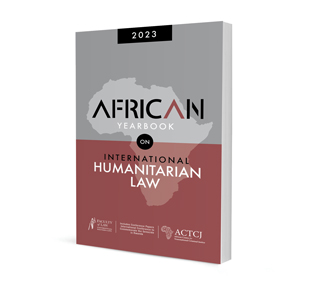
ARTICLE
A case study of the use of the word ‘genocide’ as a campaigning and advocacy tool by the Congolese Action Youth Platform
Author: Rugenge wa Nciko
ISSN: 2521-2621
Affiliations: LLB candidate, Kabarak University Law School, Nakuru, Kenya; Head of Student Bureau of the Kabarak Law Clinic (CLACLE)
Source: African Yearbook on International Humanitarian Law, 2023, p. 49 – 77
https://doi.org/10.47348/AYIH/2023/a3
Abstract
This article critically examines the strategic use of the word ‘genocide’ by the Congolese Action Youth Platform (CAYP) as a powerful tool for campaigning and advocacy, rather than engaging in the debate over whether an actual genocide, within the current legal narrative, is, indeed, occurring in the eastern Democratic Republic of Congo (DRC). The study begins by exposing the international community’s indifference to the atrocities in the eastern DRC, underscored by the ineffectiveness of the United Nations Organisation Stabilisation Mission in the Democratic Republic of the Congo (MONUSCO), the International Criminal Court (ICC), the failure to establish an International Criminal Tribunal for Congo and the bias in international media coverage. The article then explores what CAYP is and how it has deliberately employed the word ‘genocide’ to draw global attention to the plight of the eastern DRC. This analysis further explores the theoretical and practical consequences of employing such a charged term within international criminal justice. Drawing on Ngũgĩ wa Thiong’o’s concept of the ‘politics of language’ and Mahmood Mamdani’s ‘politics of naming’, the article examines how language and naming can function either as tools of resistance against or as instruments of protection for the international criminal justice system. Finally, the article incorporates Balakrishnan Rajagopal’s perspective of legitimating narratives.